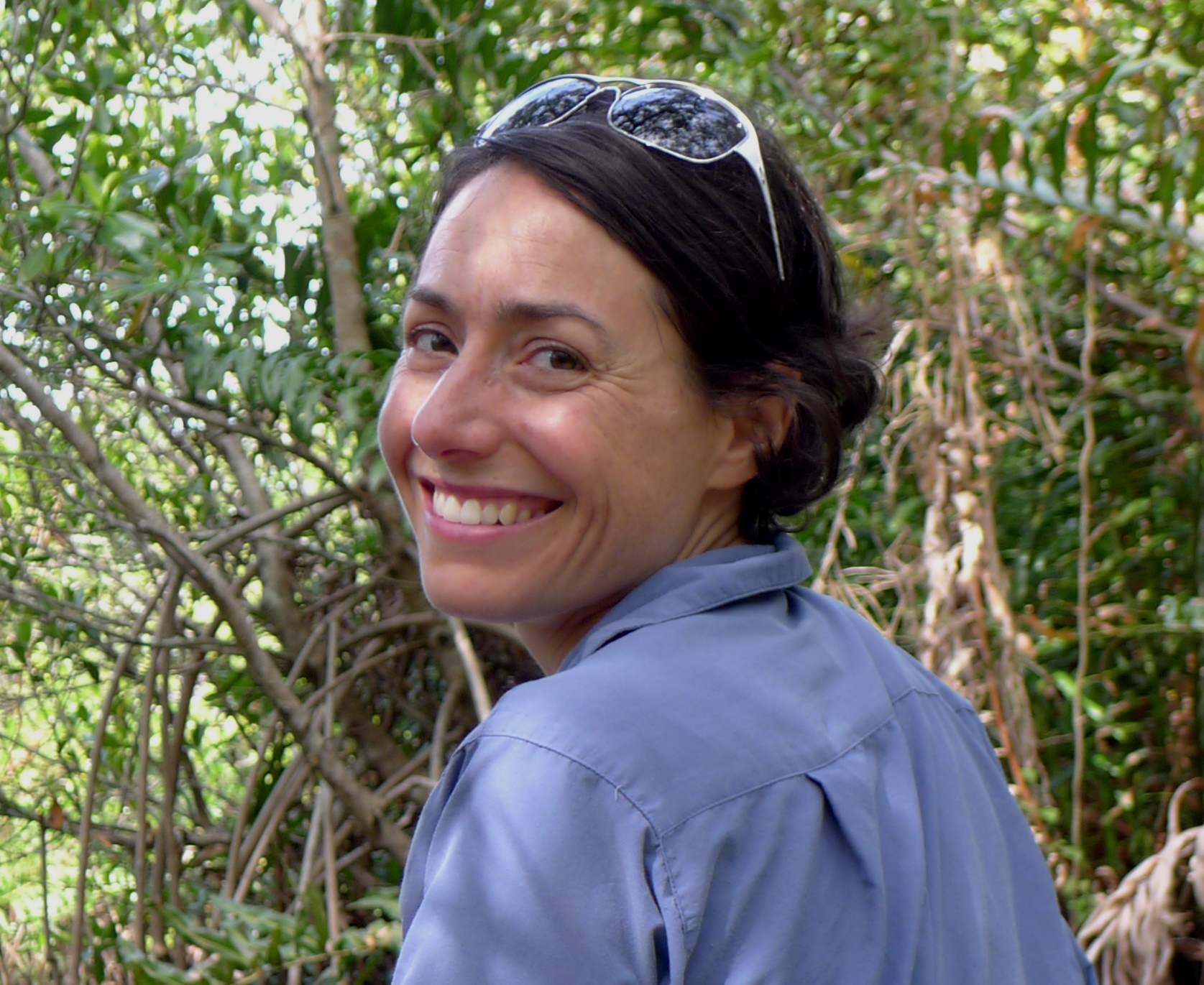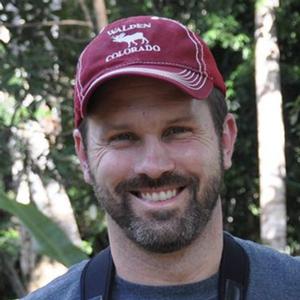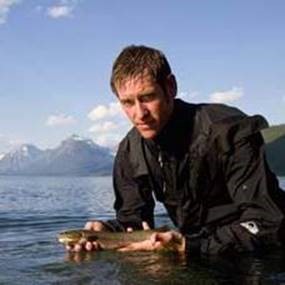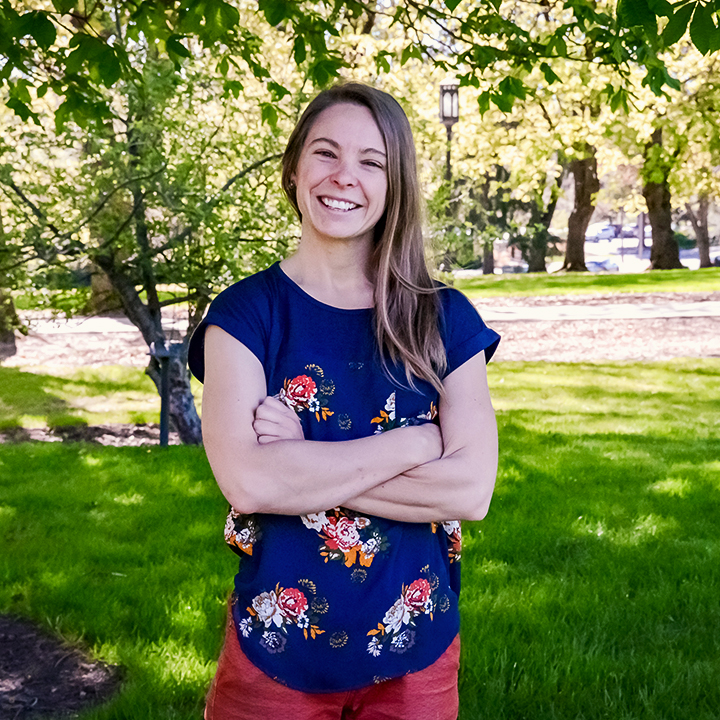2019 Instructors
Fred Allendorf

Fred W. Allendorf is a Regents Professor (Emeritus) at the University of Montana and a Professorial Research Fellow at Victoria University of Wellington in New Zealand.
His primary research interests are conservation and population genetics. He has published over 200 articles on the population genetics and conservation of fish, amphibians, mammals, invertebrates, and plants. He is a past President of the American Genetic Association and served as Director of the Population Biology Program of the US National Science Foundation. He was awarded the Molecular Ecology Prize in 2016, and he was elected as a member of the American Academy of Arts and Sciences in 2019. He has taught conservation genetics workshops in the US, Australia, Costa Rica, South Africa, and New Zealand.
Fred W. Allendorf CVEric C. Anderson

Eric is a research molecular geneticist at the Southwest Fisheries Science Center, Santa Cruz, CA, and a research associate in the Institute of Marine Sciences at University of California, Santa Cruz.
Eric develops and applies statistical and computational methods for inference from population genetic data. Most methods are directly relevant to management and conservation. His work has focused on Monte Carlo methods for efficient calculation of likelihoods from genetic models, Bayesian methods, computations on the coalescent process, application of hidden Markov models and graphical models to genetics, and inference in finite mixture models. He has recently been involved in developing methods for multigenerational pedigree inference using SNPs, deriving and using multiallelic "microhaplotype" marker data from next generation sequencing of amplicons, and large-scale pairwise relationship inference for close-kin mark-recapture.
See Research page for details: Eric C. Anderson Research
Brenna Forester

Brenna is a postdoc at Colorado State University studying the population genomics and evolutionary ecology of tailed frogs. She is interested in how genomic data can be used to assess evolutionary potential and inform the management of species of conservation concern. Her research has also focused on testing statistical approaches for detecting loci under selection in a landscape genomics framework. She completed her M.Sc at Western Washington University, and her PhD at Duke University.
Chris Funk

My research is at the interface of evolution, ecology, genomics, and conservation. In the most general sense, I investigate the evolutionary and ecological mechanisms that generate and maintain biodiversity by combining population genomics, experimental manipulations, and field studies. Much of my current research focuses on interactions between gene flow and local adaptation.
In addition to my interest in basic questions in evolutionary ecology, an important part of my research program applies population genetic concepts and new genomic tools to address conservation questions. Population genetics and genomics are invaluable in conservation and management for the delineation of conservation units, determining patterns of genetic connectivity across landscapes, and assessing the status and viability of threatened species. A major focus of my research program is the application of population genetics and genomics to address critical questions for biodiversity conservation.
Brian Hand

Brian Hand is a Postdoc at the University of Montana and the Flathead Lake Biological Station.
Brian works in the burgeoning field of landscape genetics/genomics which combines landscape ecology, computer science and spatial statistics. He is interested in using problem solving techniques (algorithms) from the field of computer science to answer important conservation problems. One of his greatest interests is to develop web-based research and educational platforms to help to revolutionize the field of conservation genetics by providing managers and researchers with powerful and accessible software tools. Recently, his work has focused on riverscape genetics modeling and studying the impact of climate change on endangered species like steelhead and bull trout. And to study the genome-wide impacts of introgression in hybridizing westslope cutthroat with rainbow trout.
Marty Kardos

Marty Kardos is a postdoc at Uppsala University (Ellegren lab) working on projects related to trait mapping, and genomic signatures of selection and inbreeding in flycatchers and wolves. His research involves inbreeding and its fitness effects, and the genetic basis of adaptation and phenotypic variation in natural populations. He starts a postdoc at the University of Montana in September 2016 mapping RADtag markers genome wide in cutthroat trout and testing for genome regions associated with survival and reproductive success in hybrid trout (and nonhybrid native).
Marty KardosJoanna Kelley

Joanna Kelley is an associate professor in Evolutionary and Population Genomics at Washington State University.
Her research interests include understanding how populations diverge and adapt to different environments, using comparative genomics and RNA-sequencing. She also uses statistical and genomic approaches to characterize specific genes and pathways that underlie adaptive change.
Gordon Luikart

Gordon Luikart is a professor at the Flathead Lake Biological Station (University of Montana).
He was a Research Scientist with the Centre National de la Recherche Scientifique (CNRS) at the University Joseph Fourier in Grenoble, France, and a Professor at the University of Porto (and CIBIO) Portugal. His research focuses on the development and application of molecular and computational approaches to understand the genetic basis of fitness, adaptation, connectivity, the spread of invasive species/pathogen, and the conservation of wild and domestic animals. He co-authored the book entitled Conservation and the Genetics of Populations, with Fred Allendorf and Sally Aitken (WileyCDA).
Mike Miller

Mike Miller is and assistant professor of population/quantitative genetics/genomics at the University of California, Davis.
His research interests are in animal genetics and genomics, conservation and ecological genomics, bioinformatics technology development, and salmonid fishes. He is a co-inventor of RADs and related novel molecular technologies. Mike led the sequencing of the rainbow trout genome.
Clint Muhlfeld

Clint is a Research Aquatic Ecologist for the USGS Northern Rocky Mountain Science Center stationed in Glacier National Park and Associate Research Professor at the University of Montana’s Flathead Lake Biological Station. His research interests encompass the fields of aquatic ecology, fisheries biology, and conservation biology. His research focuses on assessing how human stressors – invasive species, habitat modification, and climate change – influence native salmonids and rare alpine macroinvertebrates in the Rocky Mountains of the United States and Canada.
Norah Saarman

Norah P. Saarman is a postdoc at Yale University in the Caccone/Powell lab in the department of Ecology and Evolutionary Biology.
Her research in evolutionary biology leverages advances in basic research to solve real-world problems at the human-nature interface. Past research focused on conservation in the marine system, and current research has turned to disease vectors in the terrestrial system. She is particularly interested in using landscape genetics, knowledge of the genetic basis of adaptive traits, and the coevolutionary dynamics between insects and their endosymbionts to improve vector and disease control.
Mike Schwartz

Mike is the Conservation Genetics Team Leader at the Forest Service Rocky Mountain Research Station (USFS). Schwartz has spent the past 15 years focusing on the fields of population, conservation, and landscape genetics. He seeks practical answers to natural resource problems, combining field and lab work. His research combines molecular ecology lab work with a strong field component in conservation genetics, landscape genetics, genetic monitoring and the ecology of threatened species. Mike is a recipient of the Presidential Early Career Award in Science and Engineering and the Rocky Mountain Research.
Rena Schweizer

Rena Schweizer is a postdoc in the Division of Biological Sciences at the University of Montana. She is an evolutionary biologist who integrates genomics, physiology, and modern computational methods to understand the genetic basis of adaptation in natural populations. During her graduate work at UCLA, Rena implemented genomic approaches to understand genetic substructure and natural selection in gray wolves. She also developed bioinformatics resources and led analyses in several multi-institutional collaborations exploring demographic history and selection in dogs and wolves. Rena has extensive experience in many types of genomic data, and has learned a suite of computational skills, including scripting in Python, R, and Unix and parallelizing analyses on multi-core servers.
Amanda Stahlke

Amanda Stahlke is a PhD Candidate in the Bioinformatics and Computational Biology Program and Research Assistant in the Hohenlohe Lab at the University of Idaho. She studies evolutionary genomics of managed species with the goal of informing management decisions, from Tasmanian Devils to introduced biocontrol agents and invasive plants. Her research uses simulations, reduced representation sequencing, and whole genomes to understand contemporary, rapid evolution.
Robin Waples

Robin Waples is a senior scientist at the Northwest Fisheries Science Center of the National Marine Fisheries Service in Seattle. Robin led the Conservation Biology Division for a decade conducting comprehensive reviews of the status of Pacific salmonids under the US federal Endangered Species Act. Particular interests include:
adapting standard population genetics theory so that it can be applied to real-world problems;
combining diverse types of information (molecular genetics; life history; ecology) to characterize hierarchical levels of diversity in Pacific salmon;
assessing the viability of complex conservation units that include multiple independent populations and diverse ecotypes; methods for analyzing gene flow and population structure.
